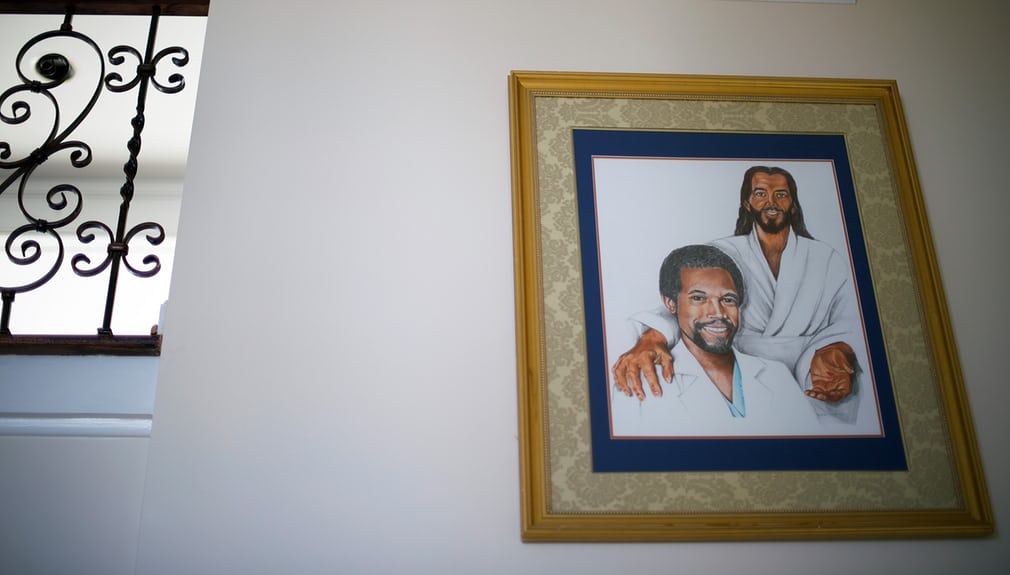HOW THIN IS THE ICE UNDER ROBERT MULLER?
[ad name=”HTML-68″] [wpedon id=”23995″ align=”left”]There seems to be one overriding question that is dominating the nation’s politics this week: Will Donald Trump fire Robert Mueller?
The decision late Friday to can Andrew McCabe the deputy director of the FBI, mere days before his retirement, was an ominous sign of the president’s intentions. While it’s possible that McCabe’s behavior at the FBI merited the action taken against him, the manner in which it happened – and Trump’s gross and tasteless follow-up tweet dancing on McCabe’s grave — left little made clear the context for his removal.
If there was any enduring confusion the trial balloon floated over the weekend by John Dowd, the president’s lawyer, calling on Deputy Attorney General Rod Rosenstein to end the Mueller investigation left little doubt. So too did Trump’s tweet on Saturdaythat attacked Mueller by name, which is the first time he did that. (Thursday morning Dowd resigned from the case).
We know that Trump tried to fire Mueller in June, but was dissuaded by his counsel Donald McGahn, who threatened to resign over Trump’s request. It’s for that reason (among others) I am bit more sanguine than others as to whether Trump will follow through on ridding himself of the special counsel. It’s not as easy as it seems.
Here’s the provision of the special counsel statute that allows for him or her to be fired:
From a reputational standpoint any lawyer who acted on Trump’s behalf would be committing career suicide. It’s clear from the president’s words and action that his rationale for firing Mueller is to end the Russia investigation, i.e. obstruct justice. There simply is no “good cause” to fire Mueller. That could also create legal problems. Firing Mueller could potentially open one up to the charge that he or she conspired with Trump to obstruct justice. In short, it’s hard to see the upside for anyone to serve as Trump’s lackey on this matter.
But that doesn’t mean that the specter of firing Mueller is not politically important. In a sense what Trump is doing here – both with the constant attacks on former FBI Director Jim Comey and McCabe, as well as hinting about removing Mueller — is trying to convince his supporters that the FBI, the Department of Justice, and the special counsel are all corrupt and conspiring against the president. That of course is ridiculous, but it’s hardly a reach to suggest that Trump supporters will come to embrace this view. The more that Republicans see the investigation as illegitimate and politically-motivated, the more they will rally around the president. That creates potential political problems for Congressional Republicans who have shown repeatedly that they don’t want to be on the wrong side of their own voters – even if the future of the country is at stake.
So if Mueller were to hand down more indictments against key members of Trump’s team and outline potentially impeachable offenses by the president, Republicans will likely find themselves under enormous pressure from their base to support Trump. The more he attacks Mueller the more that pressure may convince them to do nothing. I don’t want to give Trump more credit than he deserves for coming up with this strategy, because I tend to think he fell backwards into it rather than devised it on his own. But if Trump wants to save himself from the legal and political wrath of Robert Mueller, he’s gone a long way to doing so already.
PERSONAL RESPONSIBILITY … BUT NOT FOR ME
Back in 2014, when Ben Carson was still considering a presidential run, he appeared on Fox News to talk about the shooting of Michael Brown, a black teenager, by a white police officer in Ferguson, Missouri. For Carson, the dominant factor in Brown’s shooting was not race or policing but rather personal responsibility.
According to Carson, who is now Secretary for Housing and Urban Development, “if you take race out of the issue altogether, and you take a group of young men and you raise them with no respect for authority, not learning to take on personal responsibility, having easy access to drugs and alcohol, they’re very likely to end up as victims of violence or incarceration. It has nothing to do with race.”
I was reminded of Carson’s earlier words when I watched video of him testifying to Congress this week and being grilled on the purchase of a $31,00 dining room set for his personal office.
Carson came up with a number of explanations for how so much money was spent on the furniture – and why his tried to circumvent a $5,000 budget for cabinet secretaries to decorate their offices.
First, Carson said the matter was one of safety. “People were stuck by nails, and a chair had collapsed with someone sitting in it,” he said.
Then, he took a more unusual line of defense: he blamed his spouse. “I invited my wife to come and help,” he said. “I left it to my wife, you know, to choose something. I dismissed myself from the issues.” According to Carson, “they showed us some catalogs,” but it was his wife who “selected the color and style” of the furniture, “with the caveat that we were both not happy about the price.”
As it turns out, this doesn’t appear to be true. E-mails released under the Freedom of Information Act showed that Carson’s aides talked about ways to get around the $5,000 decoration limit and that both Carson and his wife were involved in selecting the furniture. There’s also the question as to why Carson thought it was appropriate for his wife, who is not a government employee, to be making decisions about the spending of taxpayer dollars. As for throwing his wife under the bus when facing scrutiny over buying decisions in his office … suffice to say, I hope that Candy Carson has some choice words for her husband about that.
But what really irks me about this is that when faced with questions about decisions that ultimately are the responsibility of the Secretary for Housing and Urban Development, Carson chose to deny and deflect, while placing the onus on others. The man who blamed the murder of young black men by police officers on a lack of personal responsibility can’t even take responsibility for his own actions.
This kind of blatant hypocrisy is par for the course with the Trump Administration. The president never takes the blame for anything that’s gone wrong in the 14 months since he took office. When a candidate he endorsed loses, … it’s the candidate’s fault. When he says something factually incorrect, … it’s that someone gave him bad information. When a story comes out that embarrasses the White House, … it’s the “Fake News” media. So Carson is just following a well-worn path. Still it doesn’t make it any less gross. We have an administration full of people who want others to take responsibility when they screw up. They are literally tearing immigrant families apart because some member of that family entered the country illegally. But when they make a mistake the finger-pointing begins. Harry Truman used to have a sign on his desk that read “the buck stops here.” In the Trump Administration that sign would read “the buck stops over there.”
Writing
It’s been a bit of a quiet week, but Tuesday I wrote about the 15th anniversary of the Iraq War and the colossal costs of that conflict, for which multiple generations to come will be footing the bill.
Fifteen years after the United States made the ill-fated decision to go to war in Iraq, we still seem to be avoiding a true national reckoning with that disastrous conflict and the individuals responsible for it.
Reading
There was a rather extraordinary piece in the New York Times this week on the insidious nature of racism in America – and how it is particularly directed at young men of color. According to the Times, “Black boys raised in America, even in the wealthiest families and living in some of the most well-to-do neighborhoods, still earn less in adulthood than white boys with similar backgrounds, according to a sweeping new study that traced the lives of millions of children.
“White boys who grow up rich are likely to remain that way. Black boys raised at the top, however, are more likely to become poor than to stay wealthy in their own adult households.”
But perhaps the most amazing data point from this article is the broad disparity between black men and black women. According to researchers, “black and white girls from families with comparable earnings attain similar individual incomes as adults.” In other words, income inequality between blacks and whites is solely a result of “what is happening” to boys.
Read the whole article and check out the great job the Times has done with data visualization.
Jeffrey Toobin had an excellent take in the New Yorker on Trump’s “craven” decision to fire Andrew McCabe. Haaretz spills the beans on the Israeli operation in 2007 to destroy Syria’s nuclear program. This fantastic piece of reporting reads like a juicy spy novel. Here’s part one of a great series in the Times on the problem of cops who lie and face no punishment within the force for doing so; Renee Graham at the Globe argues that we need Jeff Sessions to stick around as attorney general. She’s right and it’s a good reminder of the extent to which Donald Trump has messed with all of our heads. Don’t miss Olivia Nuzzi’s long profile of Hope Hicks, which offers some fascinating/deeply uncomfortable insights into the workings of the Trump White House.
–MICHAEL A. COHEN





